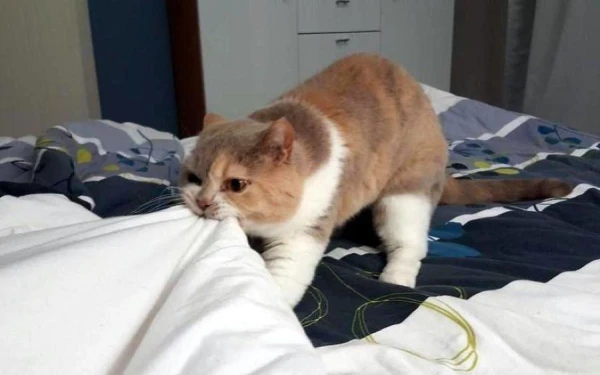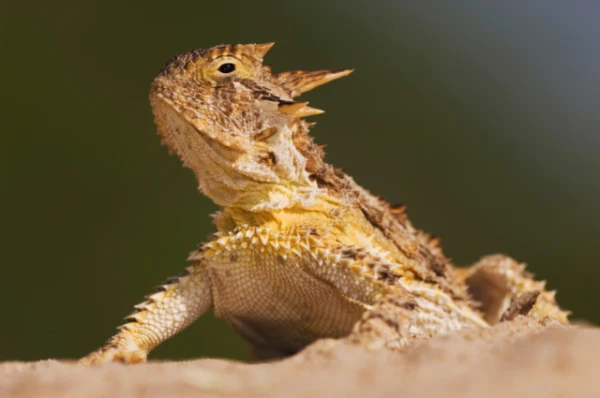
Is it true that cats are not afraid of falling and that it’s useless to train them?
Cats have lived alongside humans for centuries, yet they are still surrounded by myths. These misconceptions not only distort our understanding of pets but can also harm their psychological and physical health. Let's examine the main myths based on research data.
Myth 1. It’s Useless to Train Cats
The belief that cats are fundamentally untrainable often arises from comparing them to dogs. However, independence does not equate to a lack of intelligence.
Experiments conducted at the University of Colorado with shelter cats clearly demonstrated the opposite. It turned out that after being trained in simple commands, the animals not only experienced reduced stress levels but also increased trust in humans [1].
The key to success lies in the method of positive reinforcement — rewarding the correct action with a treat or affection rather than coercion. For example, take the command "sit": it is practiced by rewarding the cat precisely at the moment it sits down on its own. It’s better if the training sessions are short, literally five minutes each. Additionally, motivation is important: kittens respond better to play, while adult cats prefer tasty rewards. A specific signal is also needed, such as a marker word like "yes!", to clearly indicate the moment of the correct action.
Why does this work? It’s simple: cats, like any other animals, tend to repeat behaviors that bring them benefits or pleasure.
Myth 2. Cats Know What They Can and Cannot Eat
This myth is unfortunately one of the most dangerous. Indeed, cats prefer protein-rich foods like meat, but their natural curiosity often outweighs their caution. They lack genetic protection against many human-toxic foods.
For example, chocolate contains theobromine — a substance that can cause severe heart palpitations, seizures, and even lead to death in cats. Onions and garlic, so familiar to humans, destroy the red blood cells in a pet's blood, leading to anemia. Grapes or raisins can cause acute kidney failure.
Add to this the fact that a cat's digestive system is not physiologically adapted to human food: they have a short gastrointestinal tract and lack enzymes to break down carbohydrates and lactose. Therefore, trusting a pet to make its own food choices means putting its life at risk.
Myth 3. A Cat Always Lands on Its Feet
The reflex that allows cats to twist in the air and land on their feet is a real phenomenon. It is based on the coordinated work of the vestibular apparatus and the unique flexibility of a cat's spine. However, the effectiveness of this reflex depends on many factors.
Kittens, for example, fully master it only by six or even nine months of age. If a fall occurs from a low height, say less than one meter, the cat simply does not have enough time to fully rotate in the air. Factors such as obesity or musculoskeletal diseases also severely disrupt coordination and reduce the chances of a successful landing.
Falling from a height is one of the common causes of complex fractures, traumatic brain injuries, and internal organ ruptures. Therefore, it is crucial to install nets on windows and not allow pets to walk on unglazed balconies.
Myth 4. If a Cat Goes to the Bathroom in the Wrong Place, You Should Push Its Nose into the Waste
This cruel method is not only completely ineffective but also causes serious psychological harm to the animal. Cats do not possess developed abstract thinking and cannot connect punishment (nose-pushing) with a previously committed act (a puddle on the floor). For a cat, such an action is perceived solely as an act of aggression from the owner, which destroys trust.
A cat's uncleanliness is always a symptom, a signal of a problem. The reasons can vary, from stress due to moving and an uncomfortable litter box to cystitis or urinary stones. Therefore, if an unpleasant incident occurs, it is essential to thoroughly clean up the traces and eliminate the cause of stress or discomfort. And for a successful bathroom trip, be sure to praise the pet.
Myth 5. Cats Don’t Need Attention — They Are Solitary Creatures
Experiments conducted by scientists at the University of Tokyo showed that cats not only recognize their owner's voice among others but often prefer interacting with them over their favorite treats. Their need for attention and affection is simply expressed differently than that of dogs, more subtly and unobtrusively. Purring, especially accompanied by the characteristic "kneading" with their paws, is a clear sign of comfort and contentment.
If a pet is ignored, it may develop depression or unwarranted aggression. It may also start obsessively grooming itself, leading to bald patches. It is important for a cat to interact with its owner for at least 30 minutes a day.













